Byron Haskin’s The Power (1968)
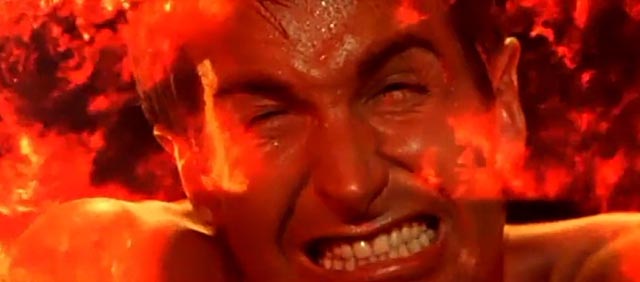
I’m not sure how much I can trust my judgement of a movie I’ve waited five decades to see. I probably first became aware of Byron Haskin’s The Power (1968) when I read John Baxter’s Science Fiction in the Cinema in 1970. Although Baxter only devoted a couple of paragraphs to the movie, it was enough to pique my interest, not least because it was the final collaboration between Haskin and producer George Pal, two men whose work meant a great deal to any fan of fantasy and SF. They had previously worked together on The War of the Worlds (1953), The Naked Jungle (1954, and where is the Blu-ray special edition of that?) – both favourites – and the lesser Conquest of Space (1955). Haskin had also directed the better-than-its-title Robinson Crusoe on Mars (1964), as well as several episodes of The Outer Limits, including Demon with a Glass Hand (1964).
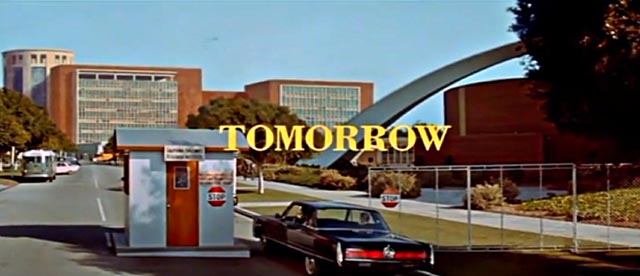
Although Baxter himself called it “one of the finest of all SF films”, The Power never seemed to turn up on television. It remained one of those titles that lingered in the back of my mind, though despite Baxter’s assertion it seemed not to have much of a critical reputation. This may partly have been due to the fact that it came out the same year as 2001: A Space Odyssey and Planet of the Apes, and in comparison looked rather old-fashioned and unambitious.
For some reason, I was reminded of The Power recently – it may have been an Amazon recommendation, which would explain why I ended up with an Italian DVD, not realizing that it had actually been issued by Warner Archive a few years back. When the package arrived, I felt that familiar mix of anticipation and wariness, excited to finally have a chance to see it, but also prepared to be disappointed. So I popped La Forza Invisibile into the player and hoped for the best.
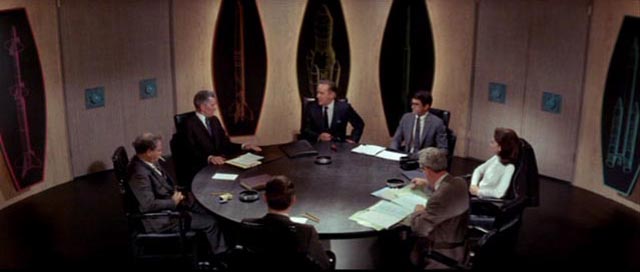
The Power was made at a time when science fiction was still a niche genre, before it came to dominate popular movie culture. As such, despite its SF premise, it’s played more as a thriller, a drama with rather subdued fantastic elements. In this, it’s more like John Sturges’ The Satan Bug (1965) or Joseph Sargent’s Colossus: The Forbin Project (1970) than the monster-filled movies of the ’50s or the effects-dominated spectacles to come – but more importantly, it stands as a precursor to the paranoid thrillers of the 1970s. In fact, it might have been a stronger movie if it had been made a few years later, when that paranoia had permeated the culture; as it is, this element is underplayed.
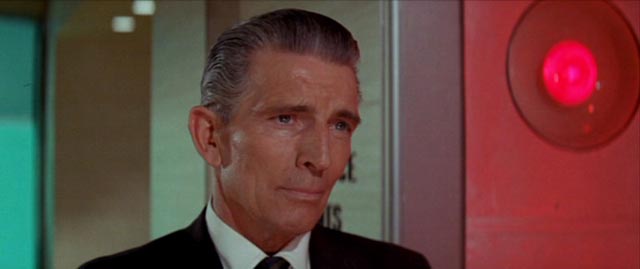
Based on the first novel (1956) by Frank M. Robinson, who went on to co-author a series of high concept thrillers with Thomas N. Scortia in the ’70s (including The Glass Inferno, on which John Guillermin’s The Towering Inferno [1974] was partly based), the script was the only SF effort of John Gay, a prolific television writer who turned out a number of surprisingly varied features in the ’60s and ’70s (he followed The Power with Jack Smight’s No Way to Treat a Lady [1968] and Ralph Nelson’s Soldier Blue [1970]).
At a research institute studying the limits of human endurance as part of the space program, a very nervous psychologist, Henry Hallson (Arthur O’Connell), deduces from test results that someone on the staff has vastly advanced mental capacities, is in fact a kind of superman whom he believes poses a threat to everyone on the project (this deduction is tossed out without a convincing justification).
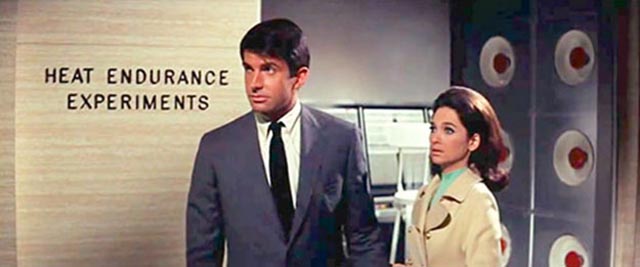
After fearfully voicing his concerns, Hallson is attacked one evening in his office by a mysterious force; the door disappears, boxing him in, and panic seems to bring on a heart attack. But what kills him is being stuck inside a centrifuge which subjects him to massive G-forces. When the project’s lead scientist, Jim Tanner (George Hamilton), becomes suspicious, he finds himself under attack – his life is progressively erased, his academic record disappears and he loses his job for being a fraud; he’s suspected of murder by the police and has to go on the run to try to find the man with the power before he himself is destroyed.
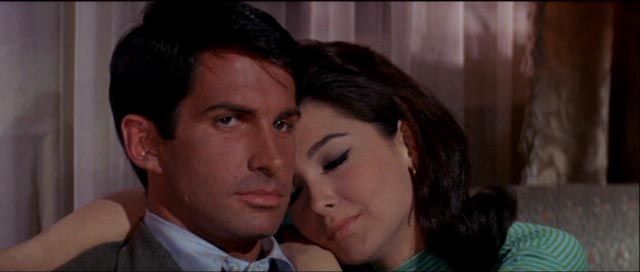
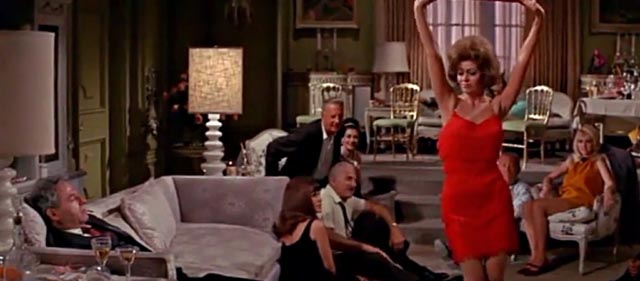
Following a single clue left by Hallson, he tracks a man named Adam Hart to a small desert town, where he’s met with suspicion and hostility. His questions about Hart lead to an attempt on his life … but more importantly reveal that no one has the same memory of what the man looks like. Hart’s power gives him the ability to hide in plain sight; he could be anyone Tanner encounters.
As Tanner investigates, each member of the team is killed in turn until the final rather anticlimactic revelation of the villain’s identity and the explanation of why he has been unable simply to kill Tanner like all the others.
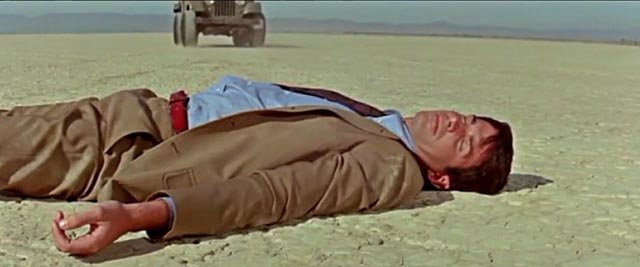
Haskin directs in a matter-of-fact style which actually benefits the film by normalizing the fantastic element rather than making it seem exceptional and exotic. That is, except for a couple of sequences in which we suddenly get Tanner’s subjective experience of being psychically attacked. These colourful, psychedelic montages now seem the most dated part of the movie, though they fall within a well-established tradition, reminiscent of the hallucinatory visions in Julian Roffman’s The Mask (1961), Roger Corman’s The Trip (1967) and Ken Russell’s Altered States (1980) among many others.
The core element of Tanner’s experience – the systematic erasure of any trace of his past experience through the disappearance of official records – has become a mainstay of thrillers since computers became central to the management of society. His academic records vanish, no doubt his bank accounts are emptied out, doubt is cast on every aspect of his identity. However, the script doesn’t really play up this nightmarish theme, concentrating more on Tanner’s investigation and evasion of the police.
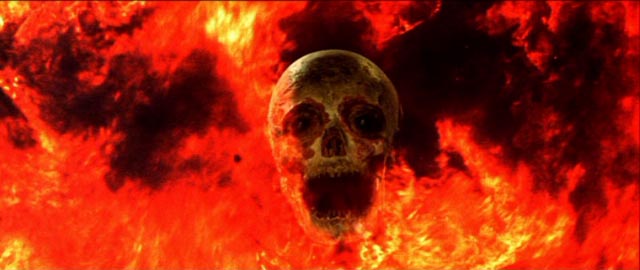
There’s suspense in that, and the cast is very good – George Hamilton is surprisingly convincing and engaging as Tanner, and there’s strong support from Richard Carlson, Michael Rennie, Aldo Ray, Yvonne De Carlo, Earl Holliman, Gary Merrill and Nehemiah Persoff, although Arthur O’Connell hams it up a bit as the panicky Hallson. Suzanne Pleshette is unfortunately given too little to do as Tanner’s love interest, who remains faithful and supportive. It might have been more dramatically effective if the villain had targeted her to further undermine Tanner’s precarious position, to shake his certainty about his own identity. As it is, he never doubts himself and neither does she.
Is The Power “one of the finest of all SF films”? Baxter, of course, was writing close to its original release and before science fiction became a prolific mainstream phenomenon. From a contemporary perspective, it looks like a solid and entertaining thriller built around a fantastic premise which is developed with prosaic intelligence. As such it definitely appeals to my own taste and I’m glad I’ve finally seen it … forty-nine years after I first read about it.
Comments